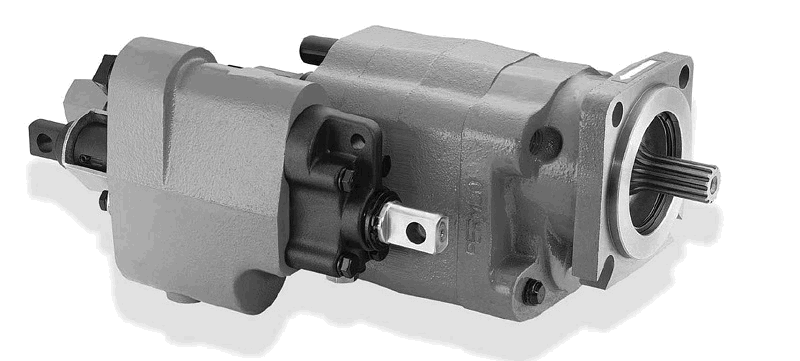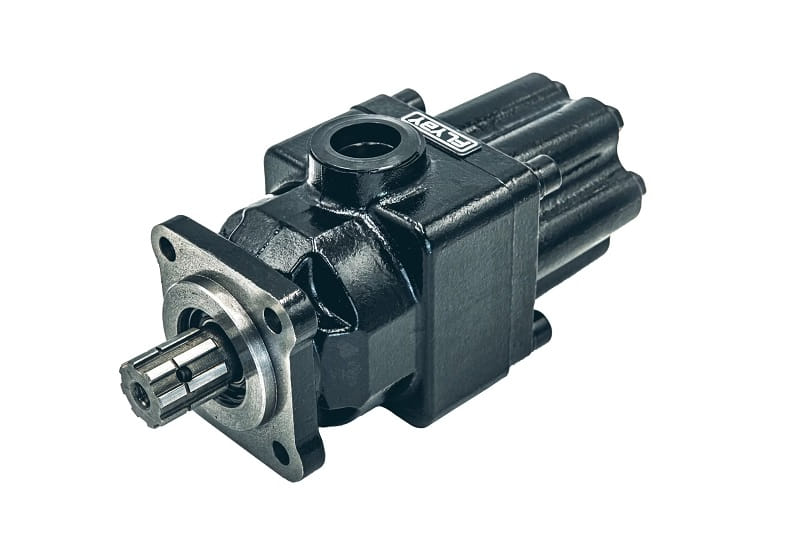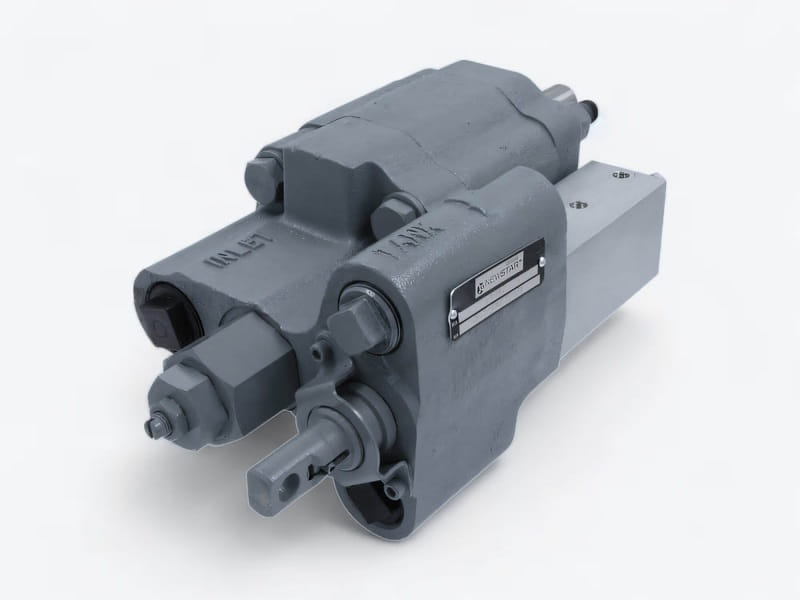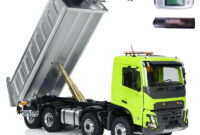Understanding the Dump Truck Hydraulic Pump: Functions, Components, and Maintenance catdumptruck.com | A dump truck is an essential vehicle in construction, mining, and transportation industries, designed to move heavy loads efficiently.
One of its most critical components is the hydraulic pump, which powers the lifting mechanism to dump materials from the truck bed.
Understanding how a dump truck hydraulic pump works, its components, and proper maintenance procedures is vital for ensuring optimal performance and longevity.
Read More: How Much Does a Dump Truck Load of Black Dirt Cost?
What is a Dump Truck Hydraulic Pump?
A dump truck hydraulic pump is a mechanical device that converts mechanical energy into hydraulic energy, enabling the lifting and lowering of the truck bed.
It supplies hydraulic fluid under high pressure to the hydraulic cylinder, which then extends and contracts to raise or lower the bed.
The pump operates using a power source, typically the truck’s engine, and plays a crucial role in ensuring smooth and efficient dumping operations.
Types of Hydraulic Pumps
There are several types of hydraulic pumps used in dump trucks, each with unique features and advantages:
-
Gear Pumps
One of the most common types used in dump trucks.
Simple design and relatively inexpensive.
Operates by using intermeshing gears to transfer hydraulic fluid.
Reliable but less efficient compared to other pump types.
-
Piston Pumps
More efficient and capable of handling higher pressures.
Uses pistons to move hydraulic fluid, providing greater precision and power.
Ideal for heavy-duty applications requiring high-pressure output.
More expensive and complex compared to gear pumps.
-
Vane Pumps
Uses rotating vanes to move hydraulic fluid.
Offers good efficiency and moderate pressure handling.
Less commonly used in dump trucks but suitable for specific applications.
Each type of pump has its advantages and is selected based on the specific requirements of the dump truck’s hydraulic system.
Understanding the Dump Truck Hydraulic Pump
Key Components of a Dump Truck Hydraulic System
A dump truck’s hydraulic system comprises several key components, including:
- Hydraulic Pump
The core component responsible for pressurizing the hydraulic fluid.
- Hydraulic Cylinder
Converts hydraulic pressure into mechanical force to lift or lower the truck bed.
- Hydraulic Reservoir
Stores hydraulic fluid and ensures proper fluid circulation.
- Control Valve
Regulates the flow of hydraulic fluid, directing it to the cylinder as needed.
- Hoses and Fittings
Transport hydraulic fluid between components.
- Power Take-Off (PTO)
Transfers mechanical power from the truck’s engine to the hydraulic pump.
Understanding these components is crucial for diagnosing and troubleshooting issues related to the hydraulic system.
Understanding the Dump Truck Hydraulic Pump

How a Dump Truck Hydraulic Pump Works
The hydraulic system of a dump truck operates in a systematic process:
- Engagement of Power Take-Off (PTO)
The driver activates the PTO, which draws power from the truck’s engine.
- Hydraulic Pump Activation
The hydraulic pump begins pressurizing the hydraulic fluid.
- Fluid Movement to Hydraulic Cylinder
The pressurized fluid is directed to the hydraulic cylinder through control valves.
- Lifting the Dump Body
As the cylinder extends, it raises the dump bed, allowing materials to be unloaded.
- Lowering the Dump Body
The control valve redirects fluid, allowing the cylinder to retract and bring the bed back to its original position.
This process happens efficiently within seconds, ensuring quick material unloading.
Understanding the Dump Truck Hydraulic Pump
Common Issues and Troubleshooting
Despite their efficiency, hydraulic pumps can encounter problems. Here are some common issues and how to address them:
- Slow or Weak Lifting
Possible causes: Low hydraulic fluid level, worn-out pump, clogged filter.
Solution: Check fluid levels, replace the filter, inspect the pump for wear.
- Leaking Hydraulic Fluid
Possible causes: Damaged hoses, loose fittings, worn-out seals.
Solution: Inspect and replace damaged hoses and seals, tighten fittings.
- Unresponsive Hydraulic System
Possible causes: Faulty control valve, air in the system, pump failure.
Solution: Bleed the system, inspect the control valve, check for pump damage.
- Overheating Hydraulic Pump
Possible causes: Overworking the system, low fluid levels, poor cooling.
Solution: Allow the system to cool, check fluid levels, improve ventilation.
Regular maintenance and early detection of issues can prevent costly repairs and downtime.
Maintenance Tips for a Dump Truck Hydraulic Pump
Proper maintenance is crucial to extend the lifespan and efficiency of the hydraulic pump. Follow these tips:
- Regular Fluid Checks
Ensure hydraulic fluid is at the recommended level and free from contamination.
- Replace Filters Periodically
Dirty filters can restrict fluid flow and reduce pump efficiency.
- Inspect Hoses and Fittings
Look for signs of wear, leaks, or loose connections.
- Keep the System Clean
Prevent dirt and debris from entering the hydraulic system.
- Monitor for Unusual Noises
Grinding or whining sounds may indicate a failing pump.
- Service PTO System
Ensure the PTO is functioning correctly, as it directly impacts pump performance.
By adhering to a regular maintenance schedule, operators can minimize downtime and maximize efficiency.
Conclusion
The hydraulic pump is the backbone of a dump truck’s functionality, ensuring smooth and efficient unloading of materials.
Understanding its operation, components, and maintenance needs is essential for ensuring reliable performance. By addressing issues promptly and performing regular maintenance, dump truck operators can enhance the longevity of their hydraulic systems, reducing operational costs and downtime.
Investing in high-quality hydraulic pumps and proper servicing will ensure that dump trucks continue to operate at peak efficiency for years to come.
- Hooklift Trucks for Sale in the UK: A Comprehensive Guide - March 31, 2025
- Hooklift Truck Auction: A Complete Guide - March 31, 2025
- Hooklift Truck for Sale in BC: A Comprehensive Guide - March 30, 2025





